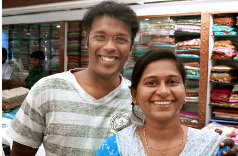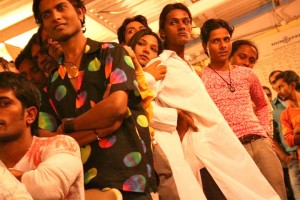By Emma Cott, for The Hindu Sunday Magazine (class of 2009)
 BANGALORE, India, January 2009—Satya Naresh is hunched over a laptop in his office, waiting for his website to open. “I need to upgrade the server,” beams the 38-year-old founder and CEO of idontwantdowry.com, India’s first and only matrimonial website for brides and grooms that want to marry without dowry.
BANGALORE, India, January 2009—Satya Naresh is hunched over a laptop in his office, waiting for his website to open. “I need to upgrade the server,” beams the 38-year-old founder and CEO of idontwantdowry.com, India’s first and only matrimonial website for brides and grooms that want to marry without dowry.
Ever since the success of his third matrimonial meet-up, or Swayamvaram, last December, curious young people have been logging in, and 300 new profiles are awaiting approval. As the site enters its fourth year, membership is still shy of 10,000, but Naresh is confident that as more people speak out against dowry while finding happy matches, the idea will catch on. He gushes about each of his 13 “success couples” like a proud parent.
Although dowry was outlawed in 1961, it is still practised to different extents in different castes. Dowry harassment can range from a lifetime of verbal abuse to extreme physical and sexual abuse to murder. But few are willing to speak about it from their own experience.
Vasantha, a producer at a television station, said that she attempted suicide after the beatings and emotional abuse by her husband and in-laws became too severe. Her two-year-long marriage was “like a hell for me. Every day they were torturing me…”
Thanks to the support of her parents, who moved to Hyderabad to care for her after her subsequent divorce, Vasantha escaped a deadly fate. But many don’t.
—

